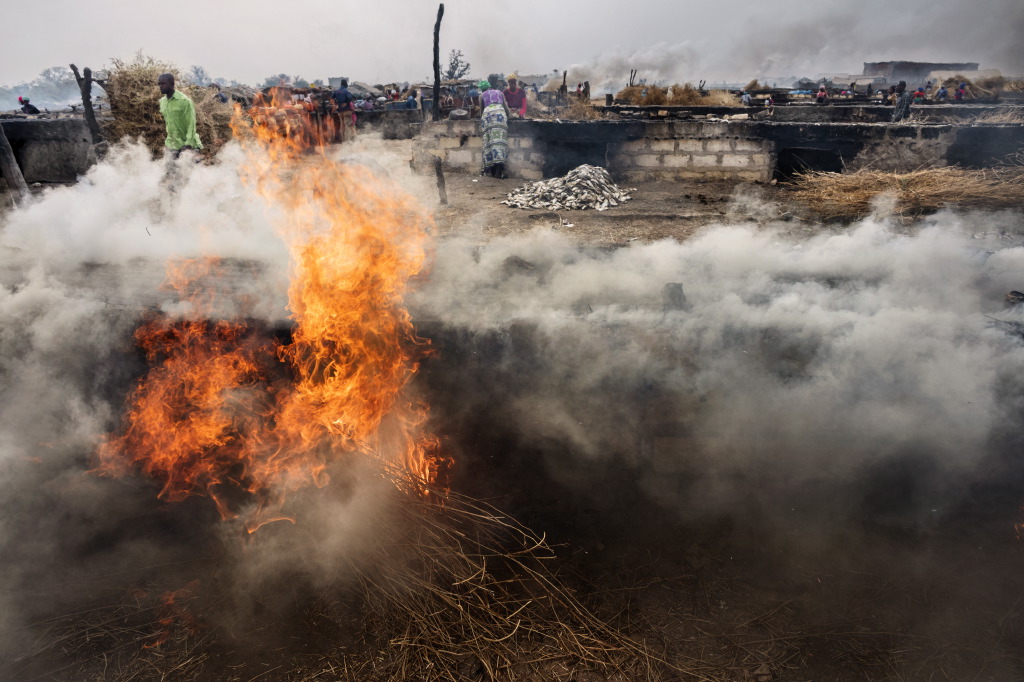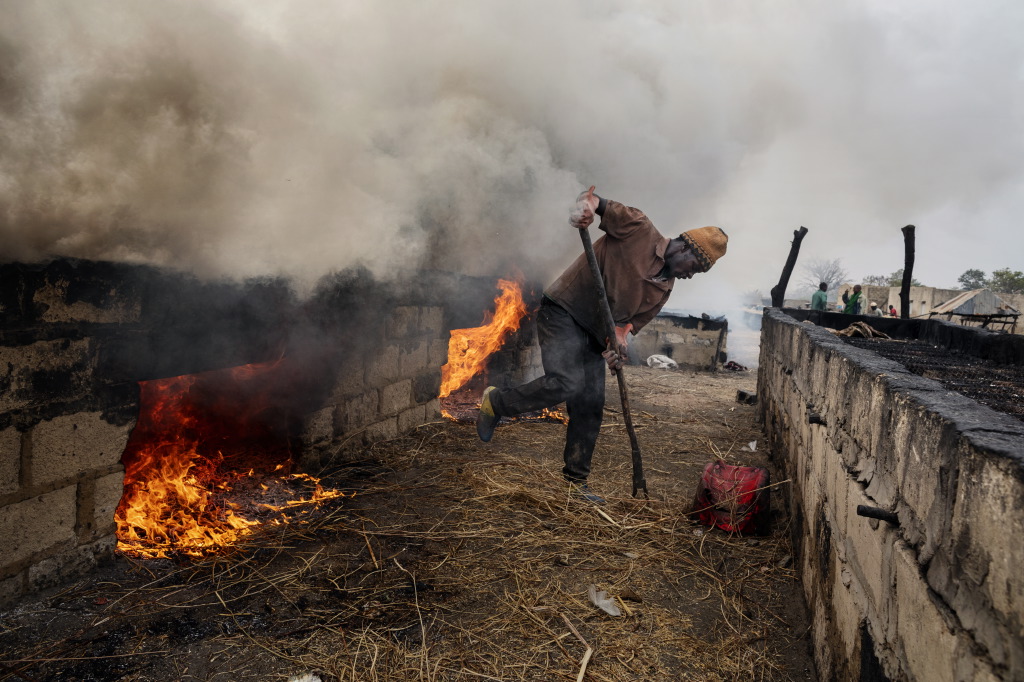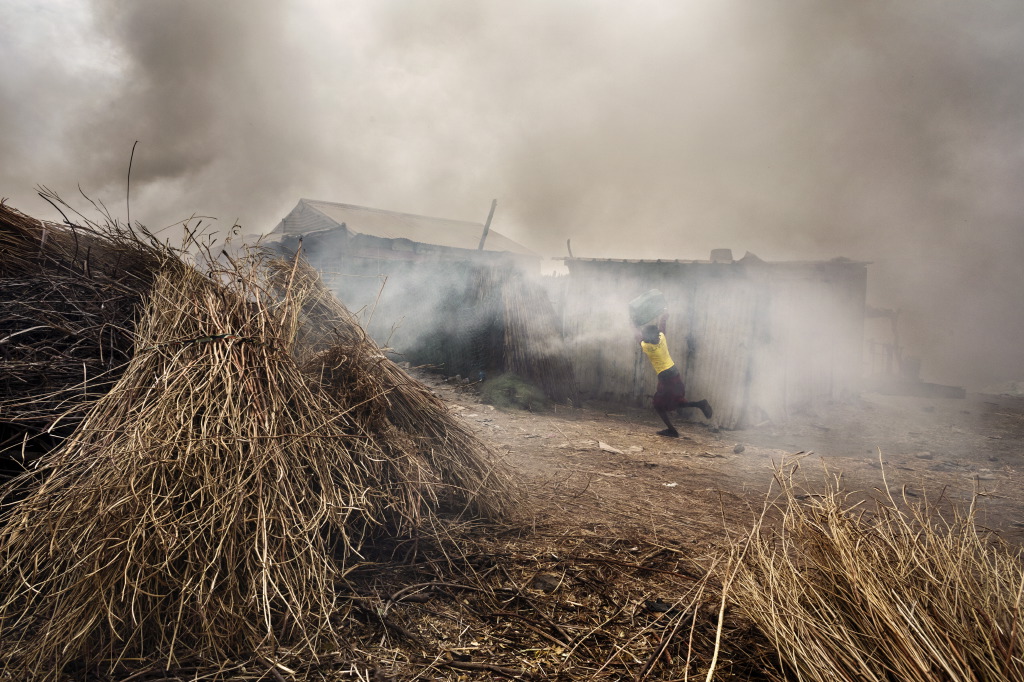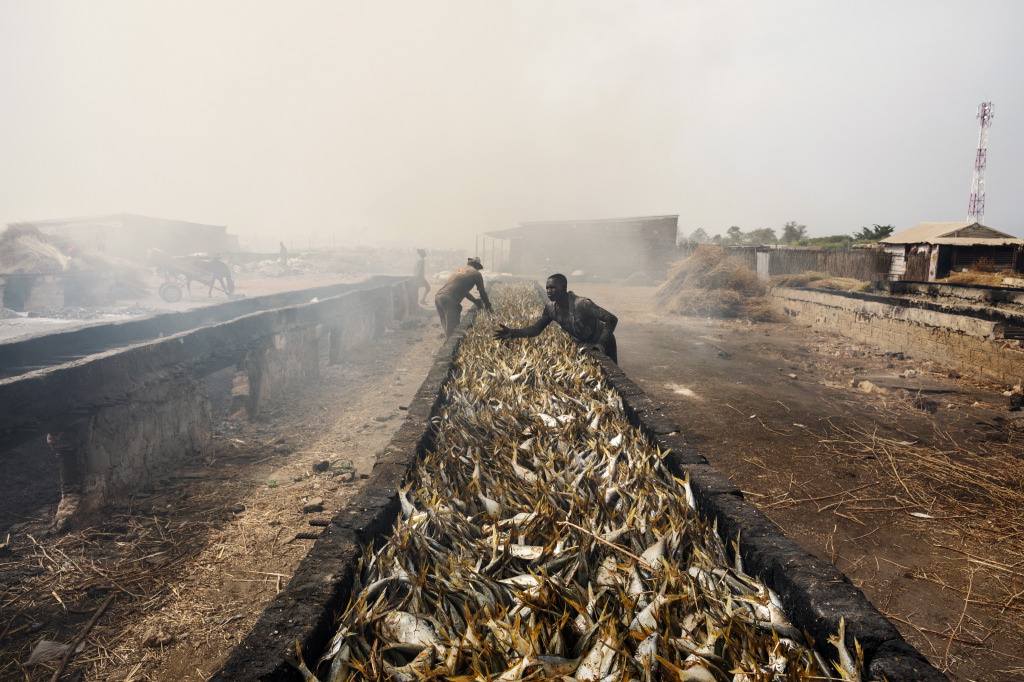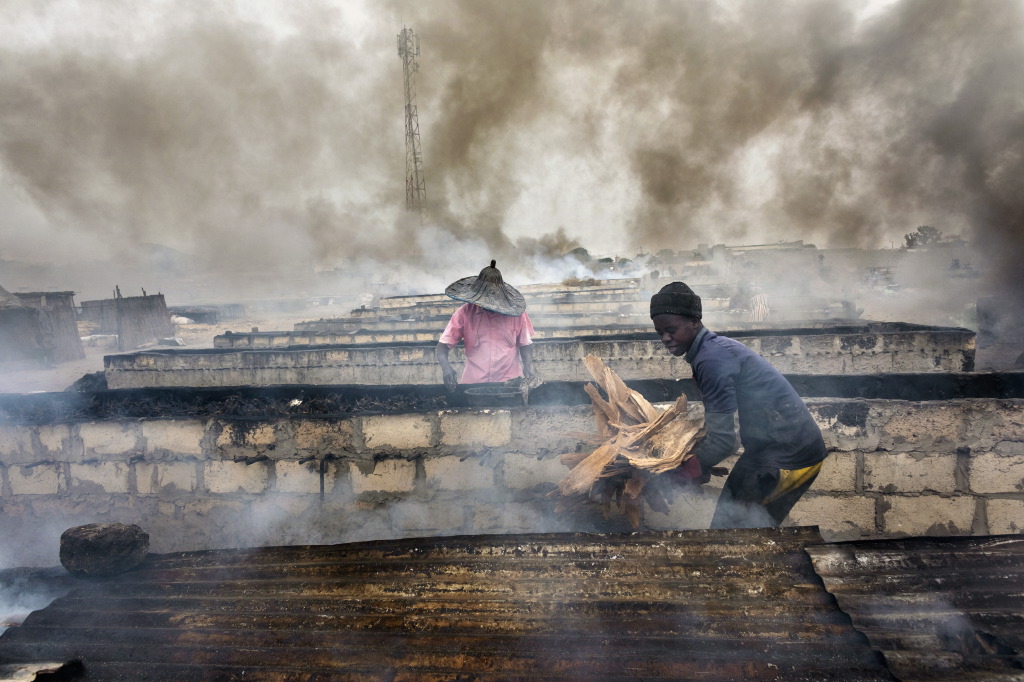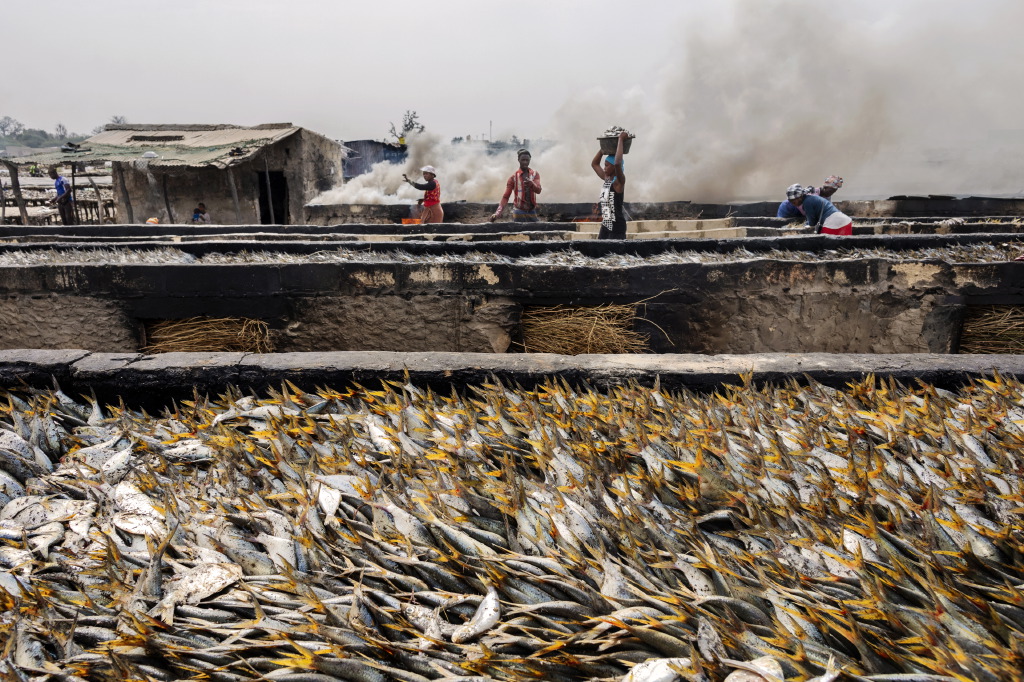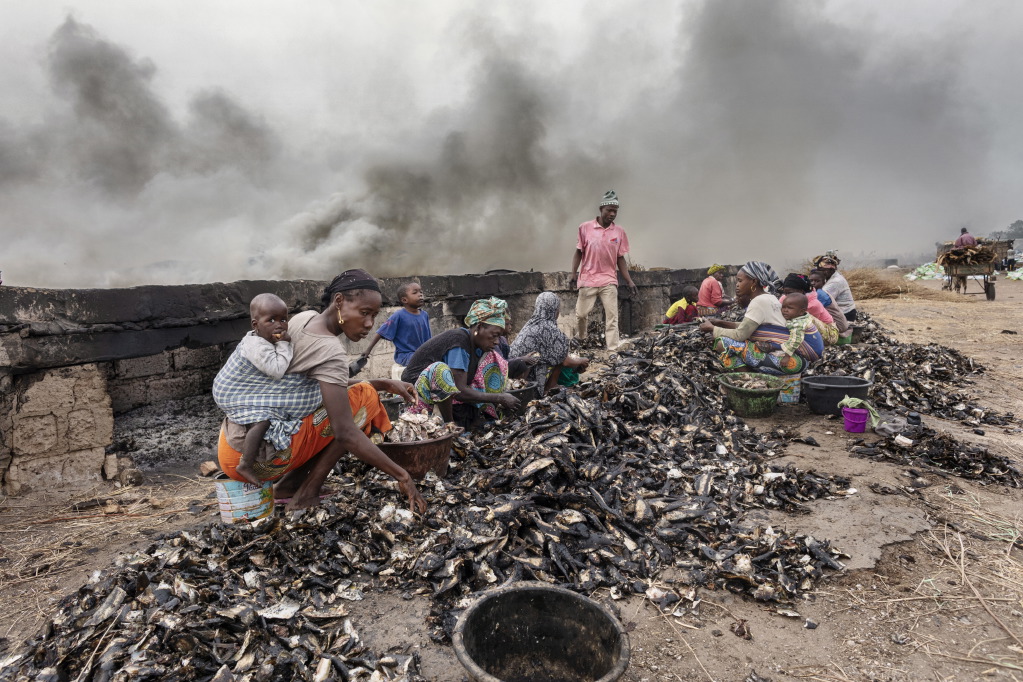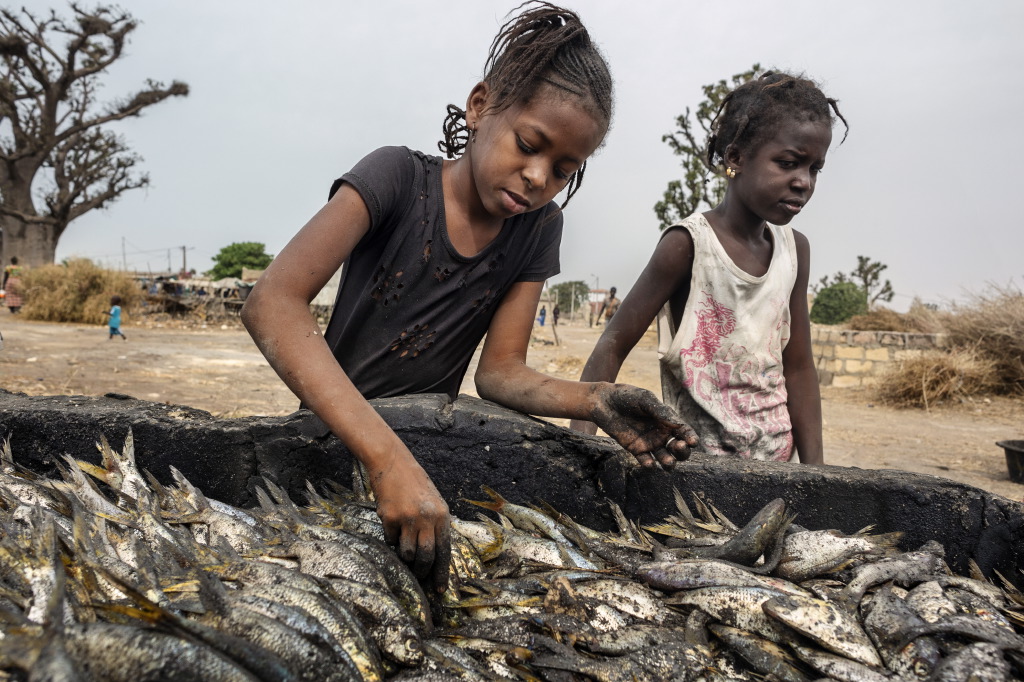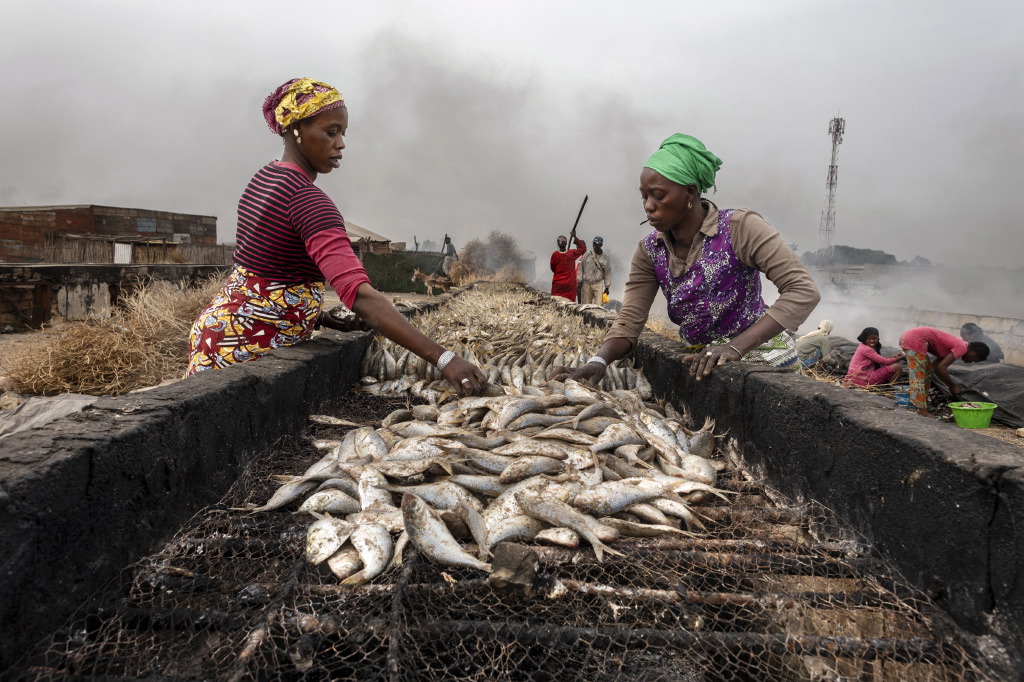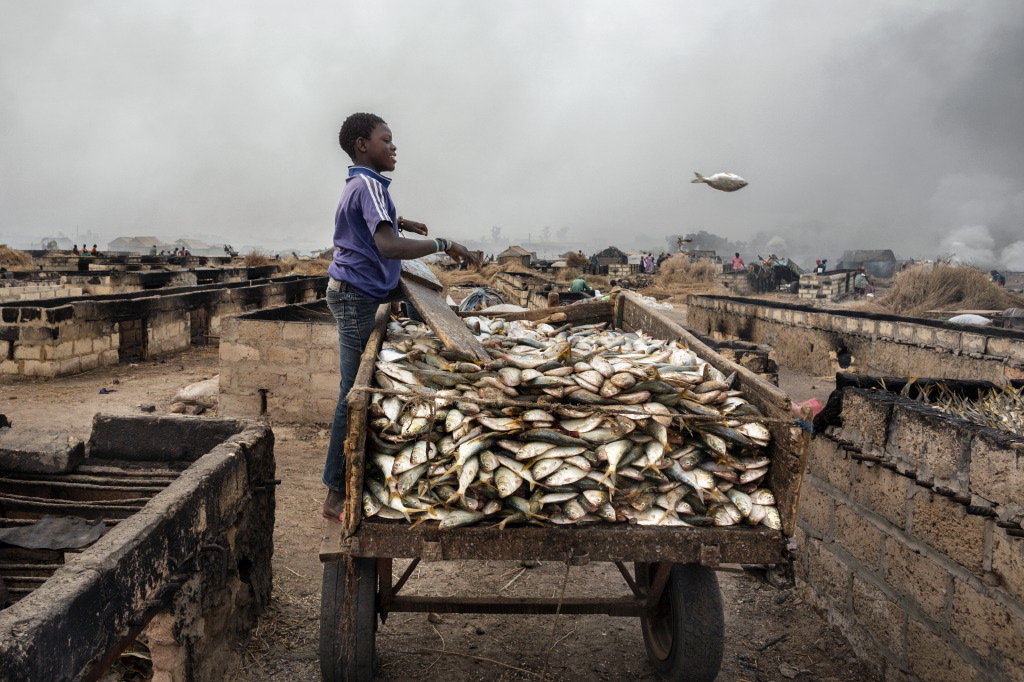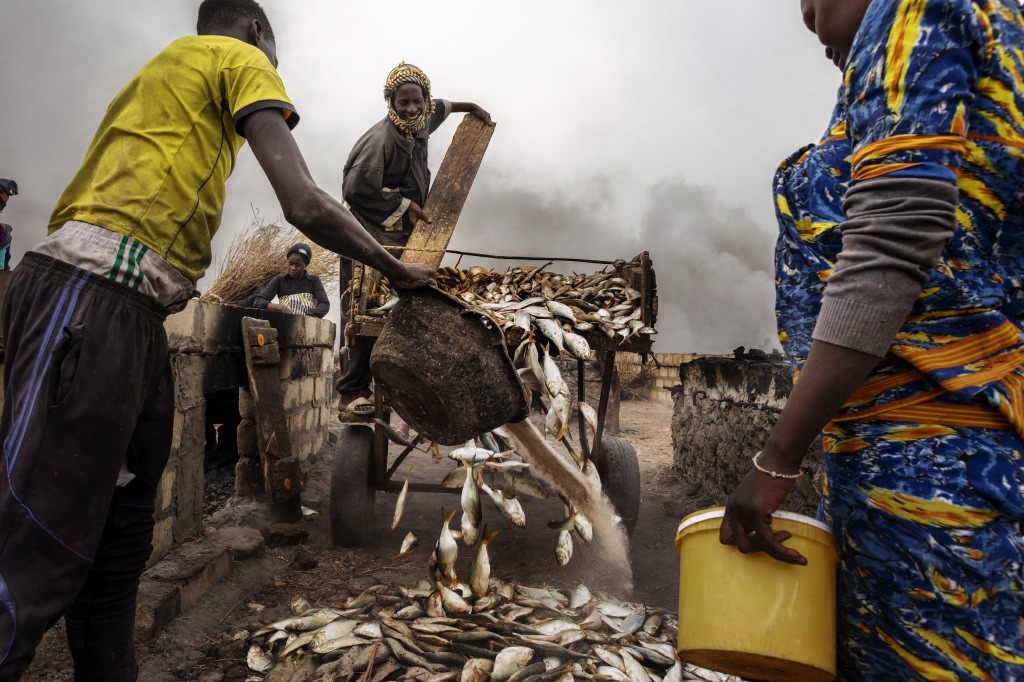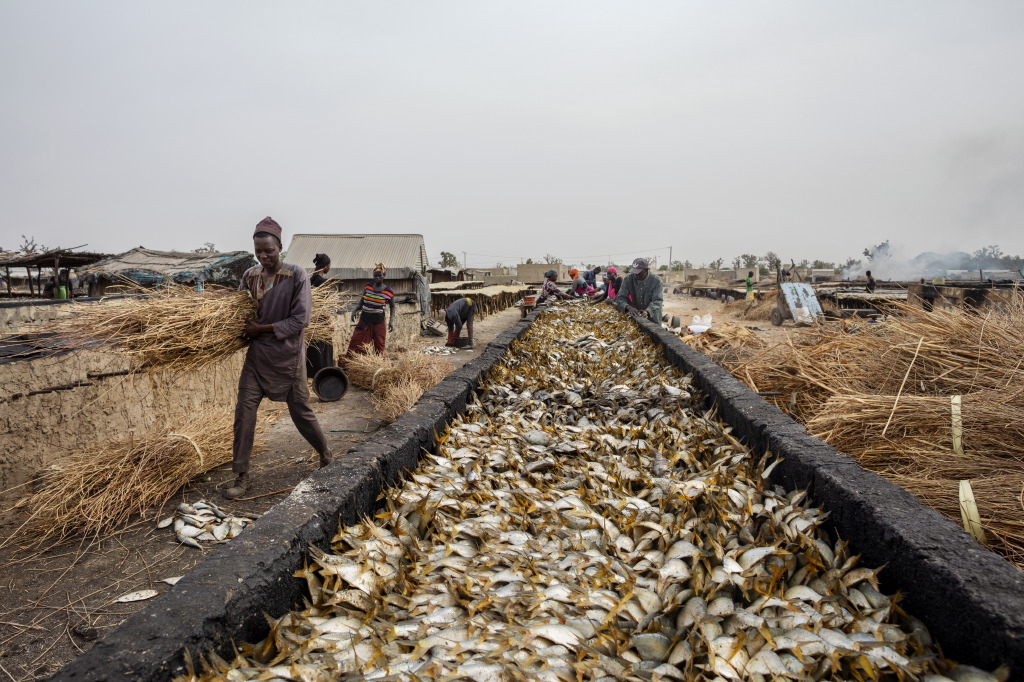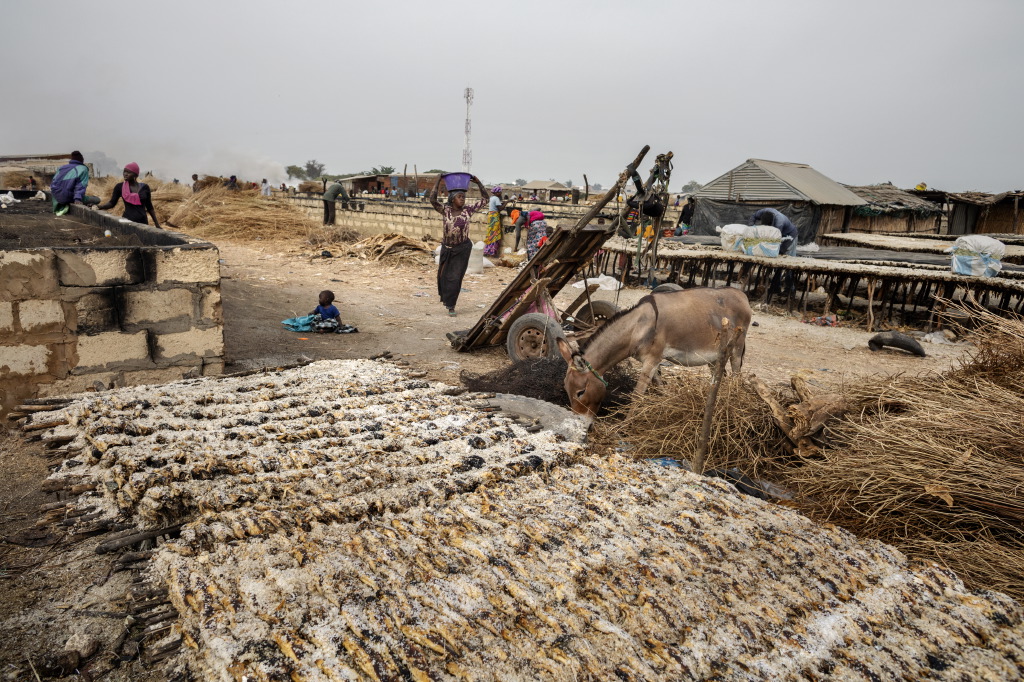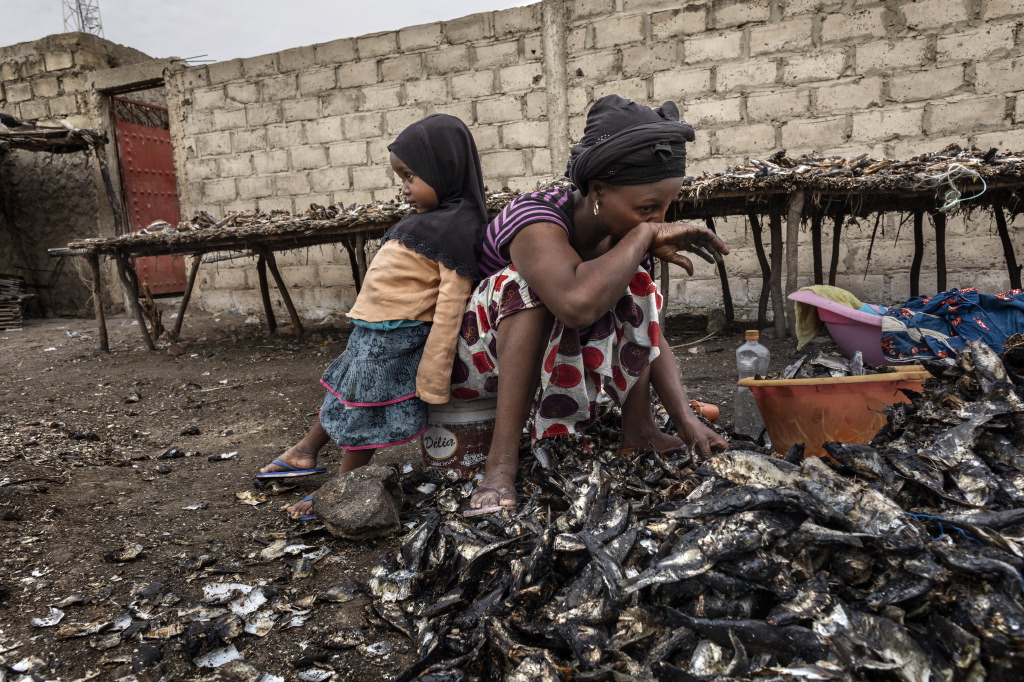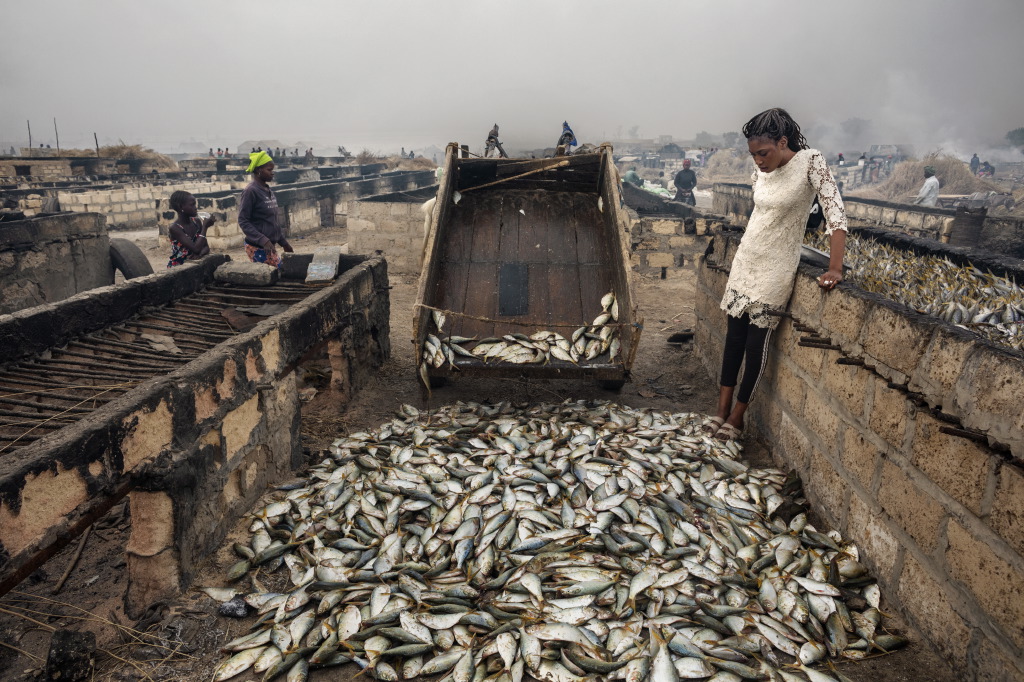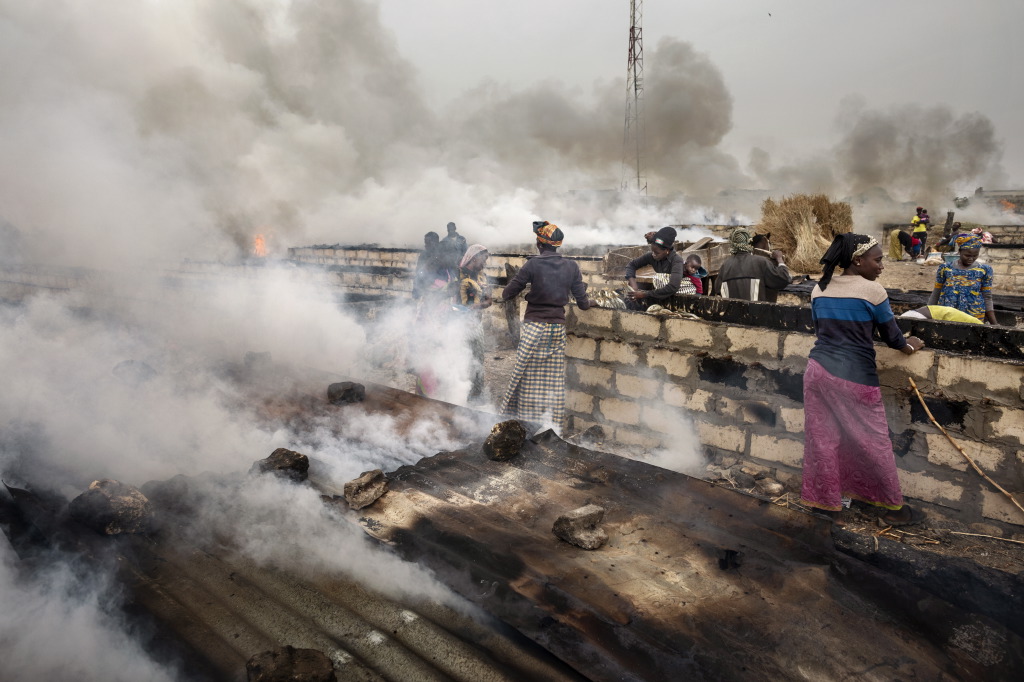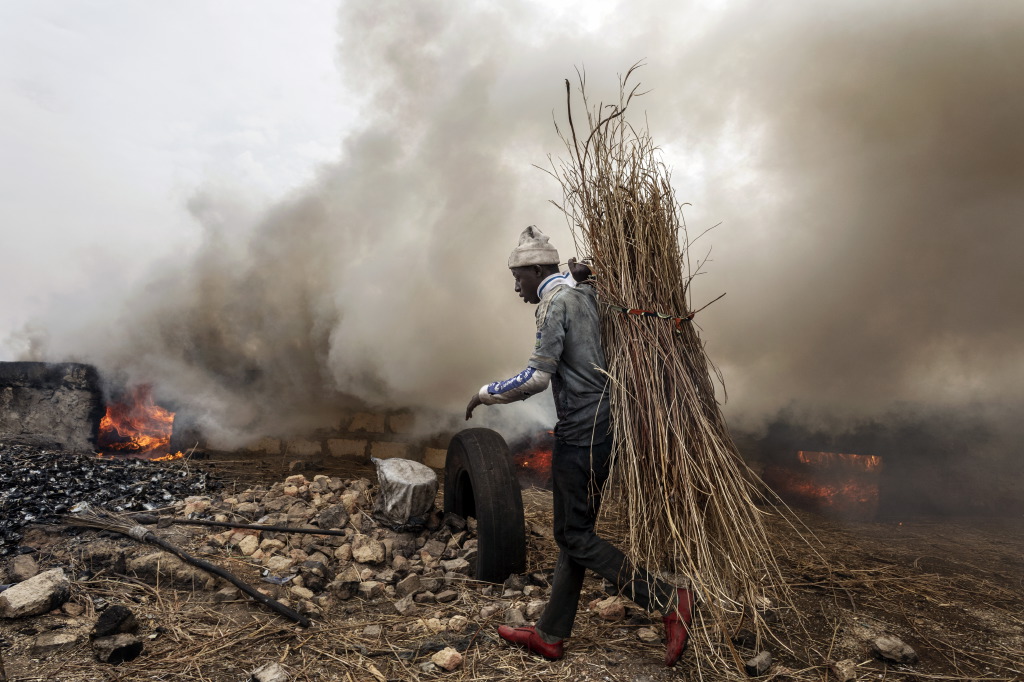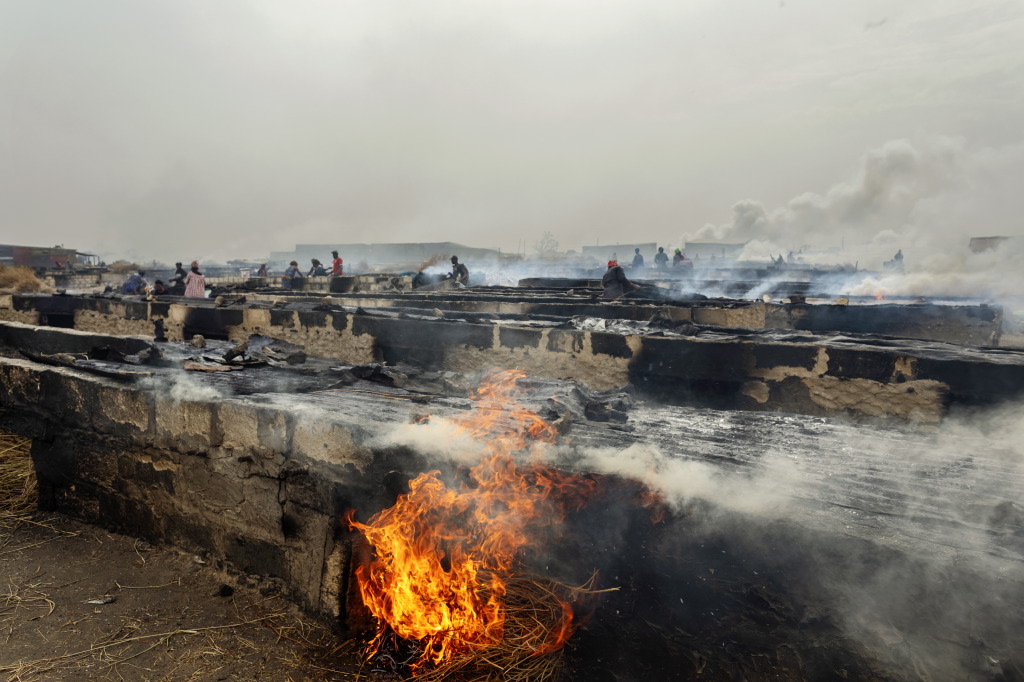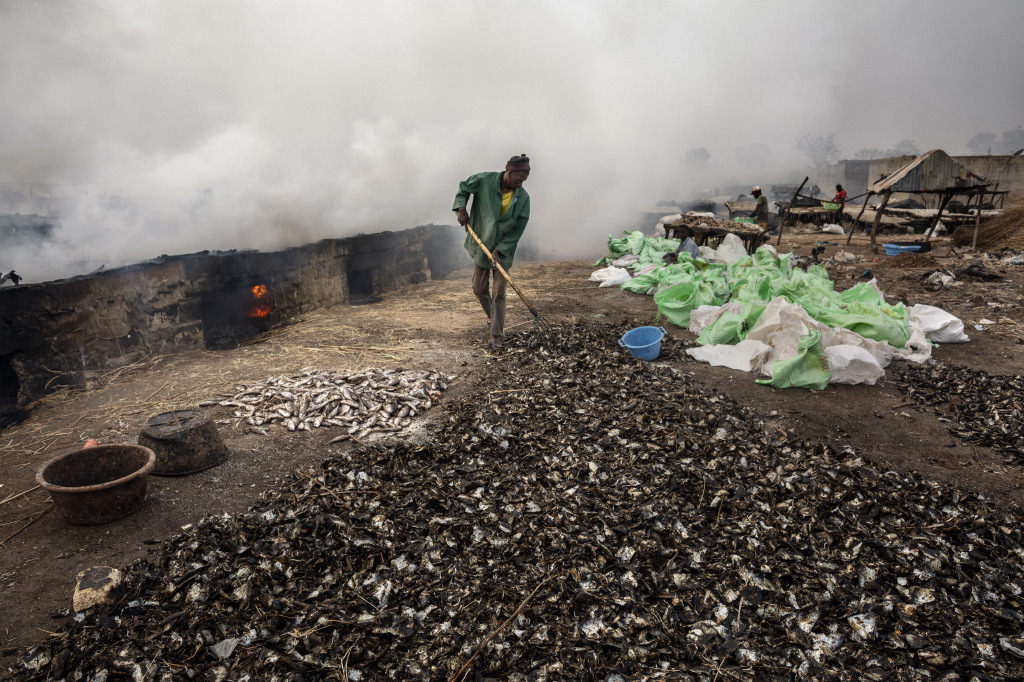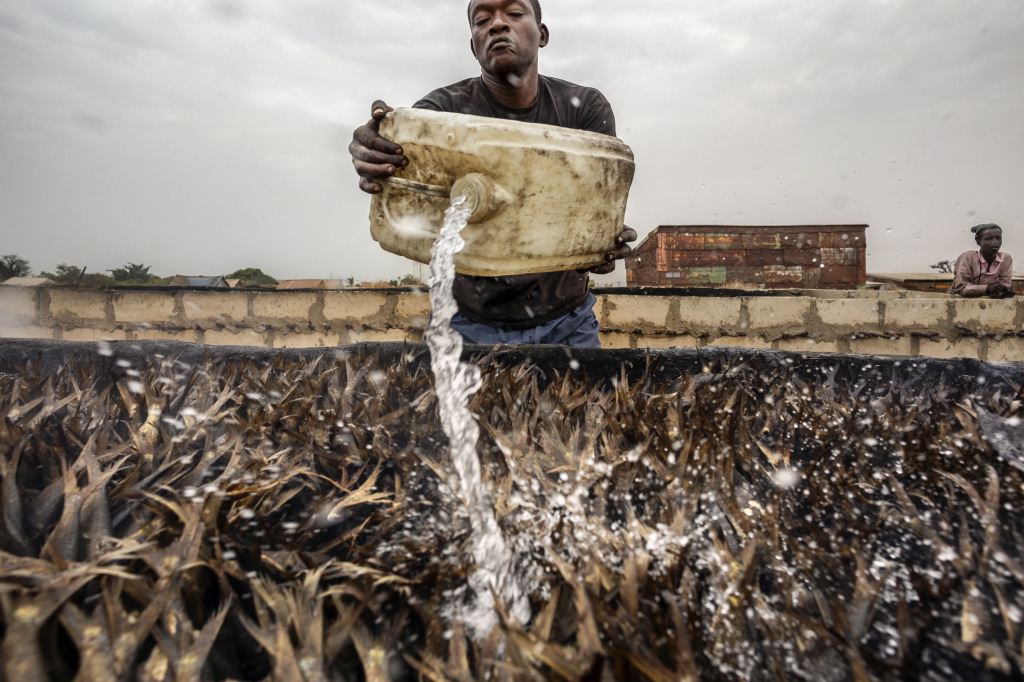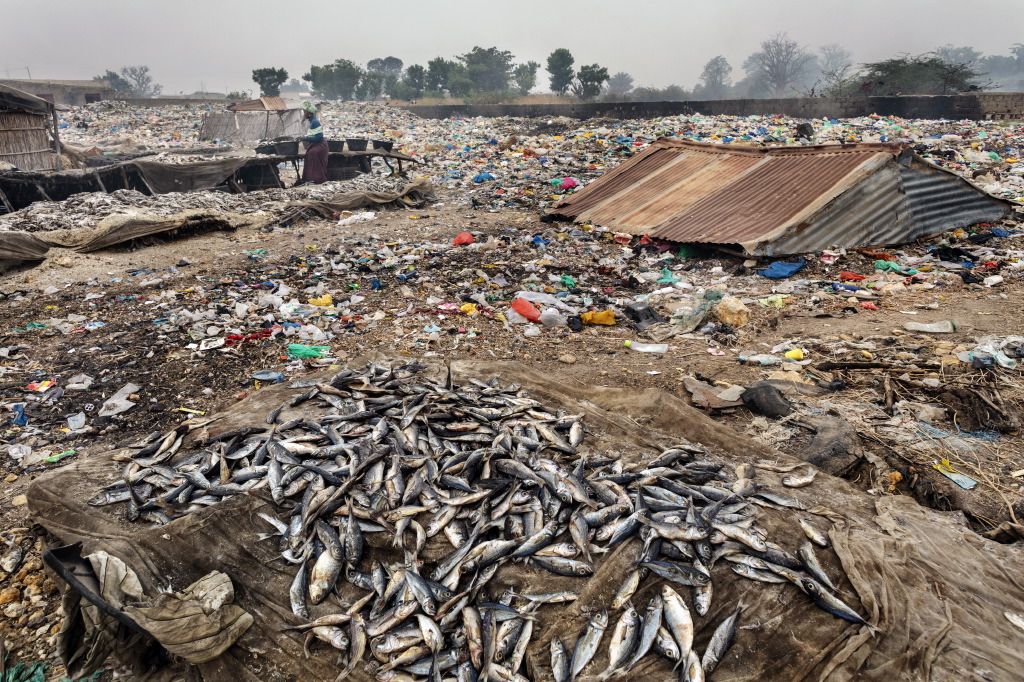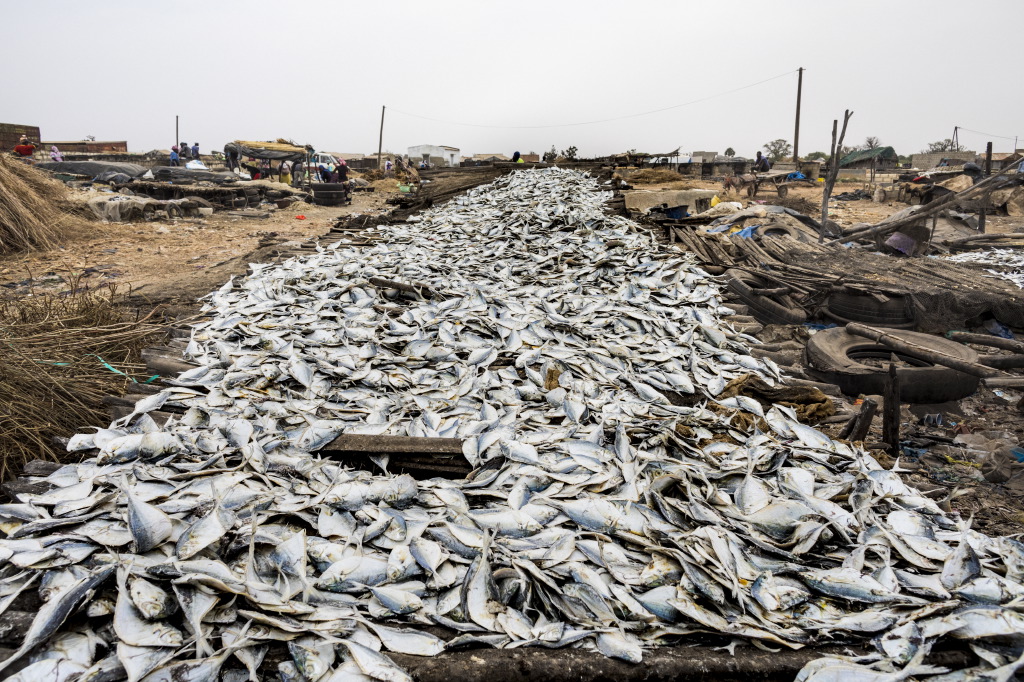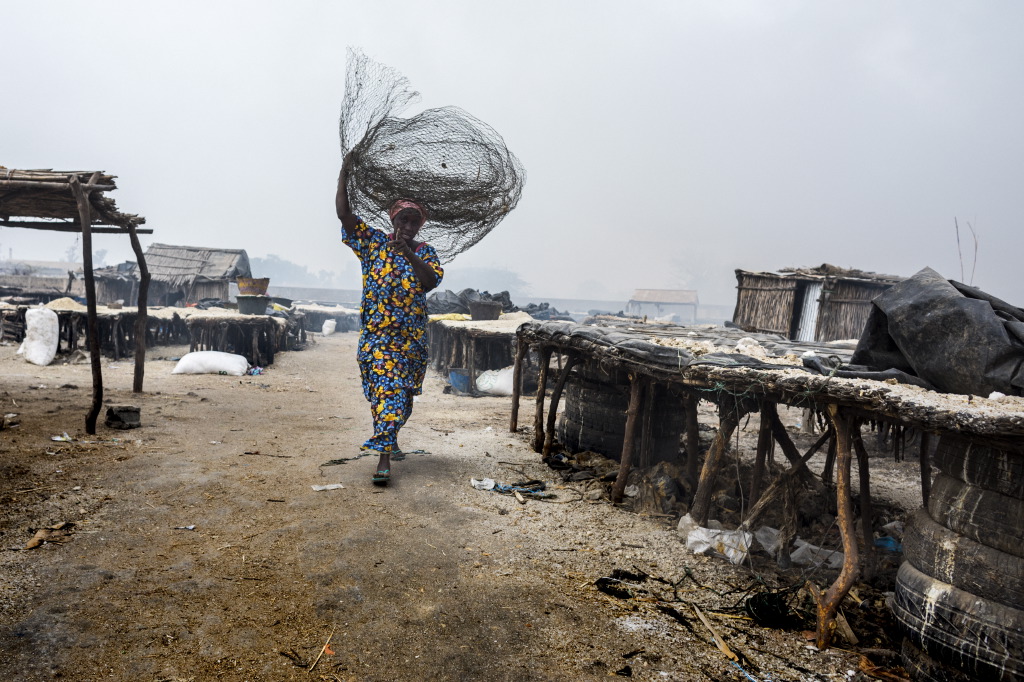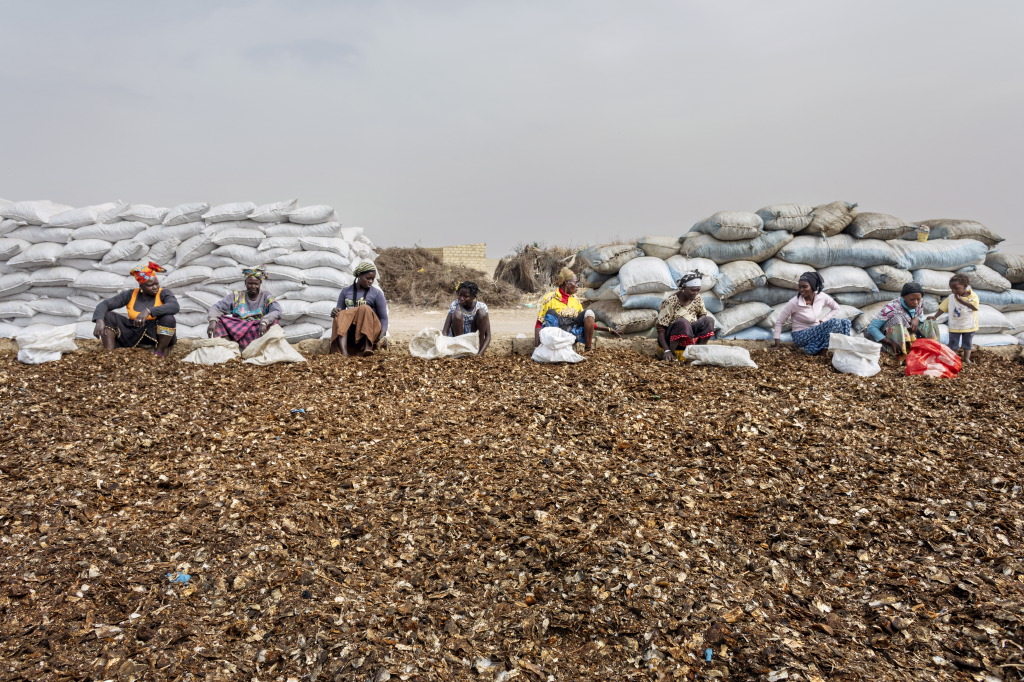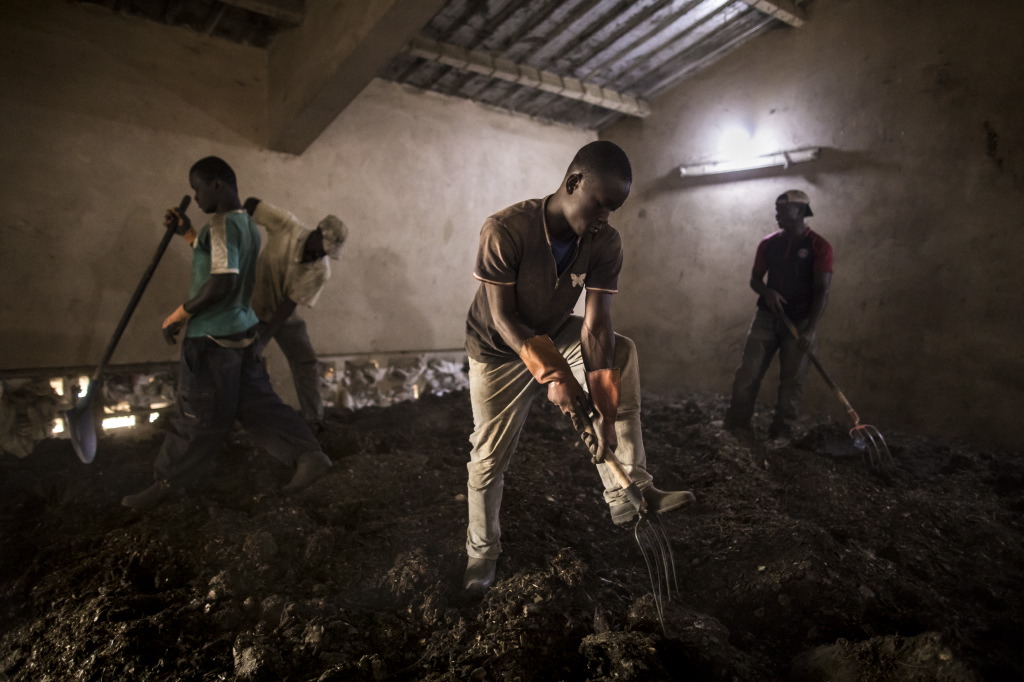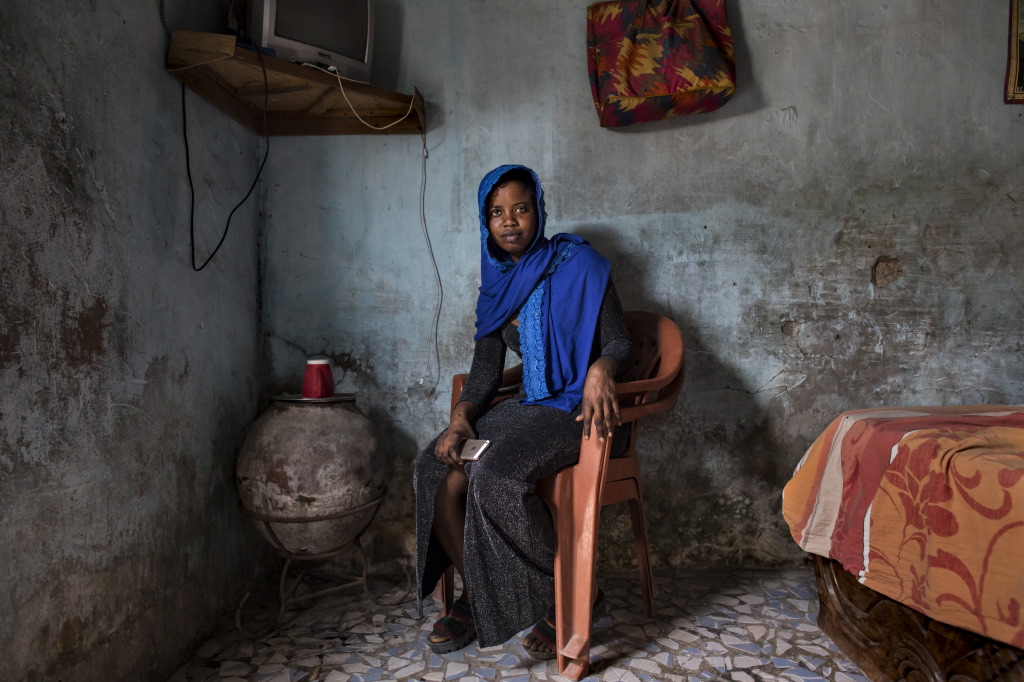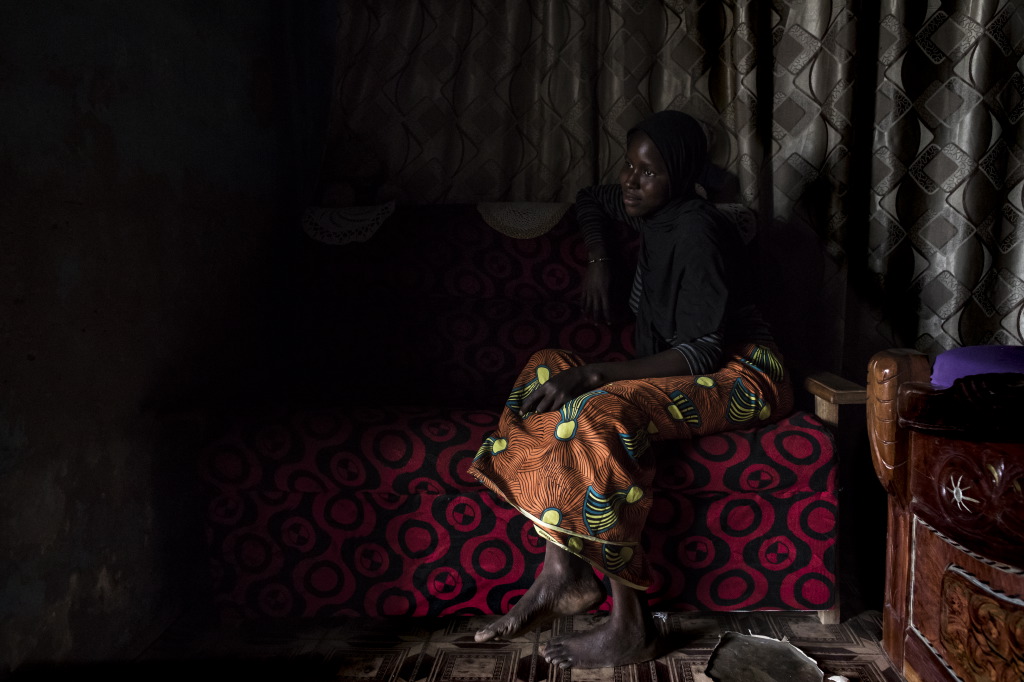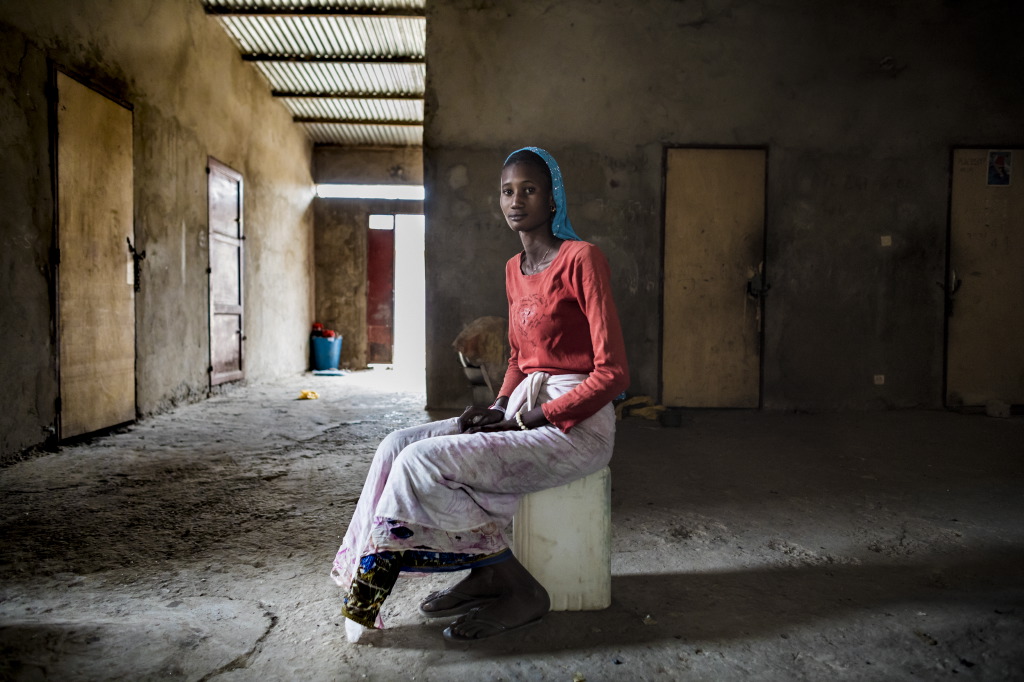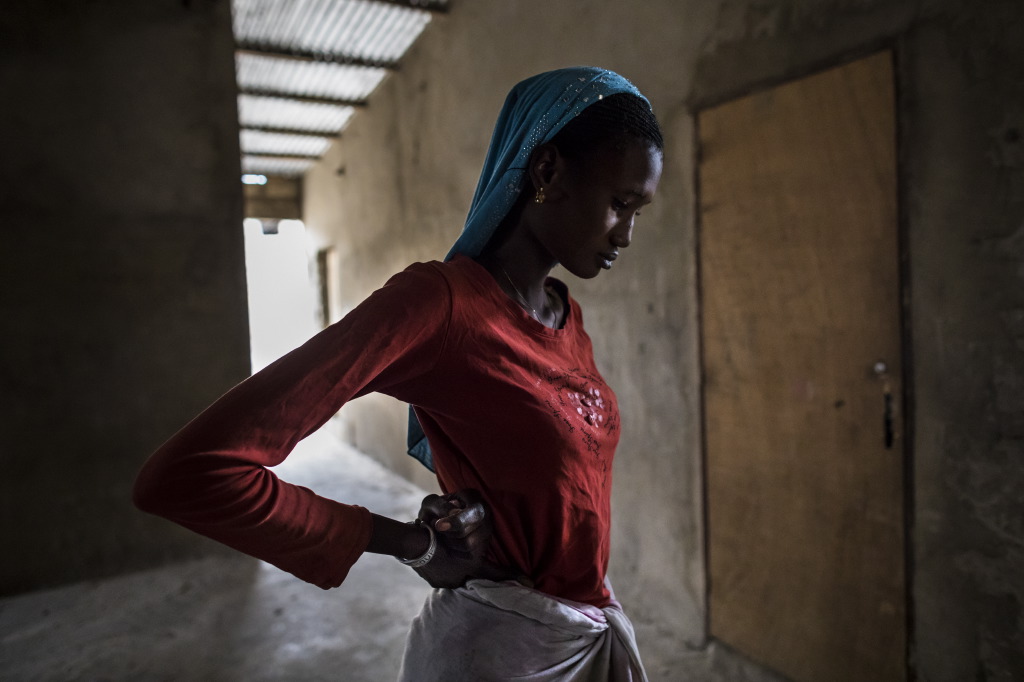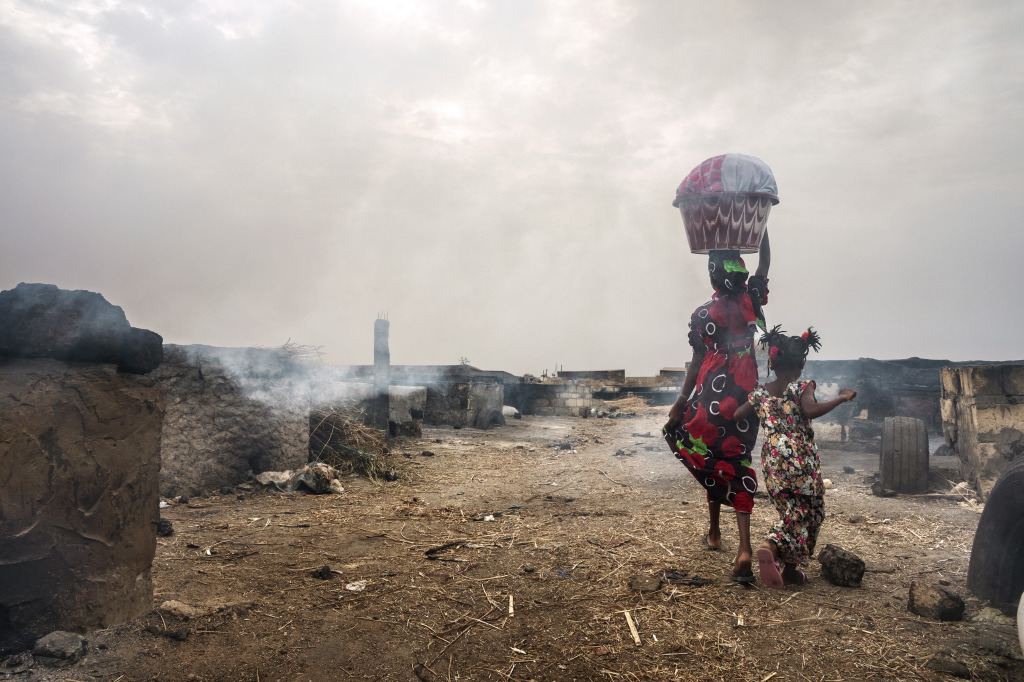X
Dried fish represents a vital source of food and income for the many people living along Senegal and other Western Africa Countries shores. Based on World Bank data, about 600.000 people are employed in this sector – approximately 20 per cent of the Senegalese workforce – and fish cover 75 per cent of proteins consumption in the Country. Joal-Fadiouth is one of the most important harbours in Senegal and the biggest centre for fish workmanship in Western Africa. Before being exported to neighbour countries, the fish intended for African markets such as Mali, Burkina Faso, the Ivory Coast and Guinea is dried on thousands wood shelves. Everyday men, women and children work to make the fish dry, removing tails, heads and flippers; the prepared hand-made fish are then laid on low tables for the final drying. Salt traders and farmers provide the straw needed for the drying process. Everyone is involved in such a valuable work for local people livelihood. Sanou Diouf, as many thousands of women in the city, works fulltime salting and drying mackerels, anchovies and sardines. Back in 2010, whenshe moved to Joal, situated south of Dakar, she was able to earn up to ten thousand francs CFA (15 euros) a day. Nowadays, because of the downturn of fishing market, she feels lucky if she can reach three thousand francs CFA. “Most of the time – she tells – I must fight to make sure there is food enough for my six kids. I bring back home some of the dried fish because, often, we have nothing else to eat.” Fish stock in Western Africa, once the richest of the world, is dropping dramatically as foreign vessels are fishing on an industrial scale and scouring the ocean to meet European and Asian markets needs, thus threatening Senegal’s livelihood and food security. (Text by Benedetta Cortesi).
